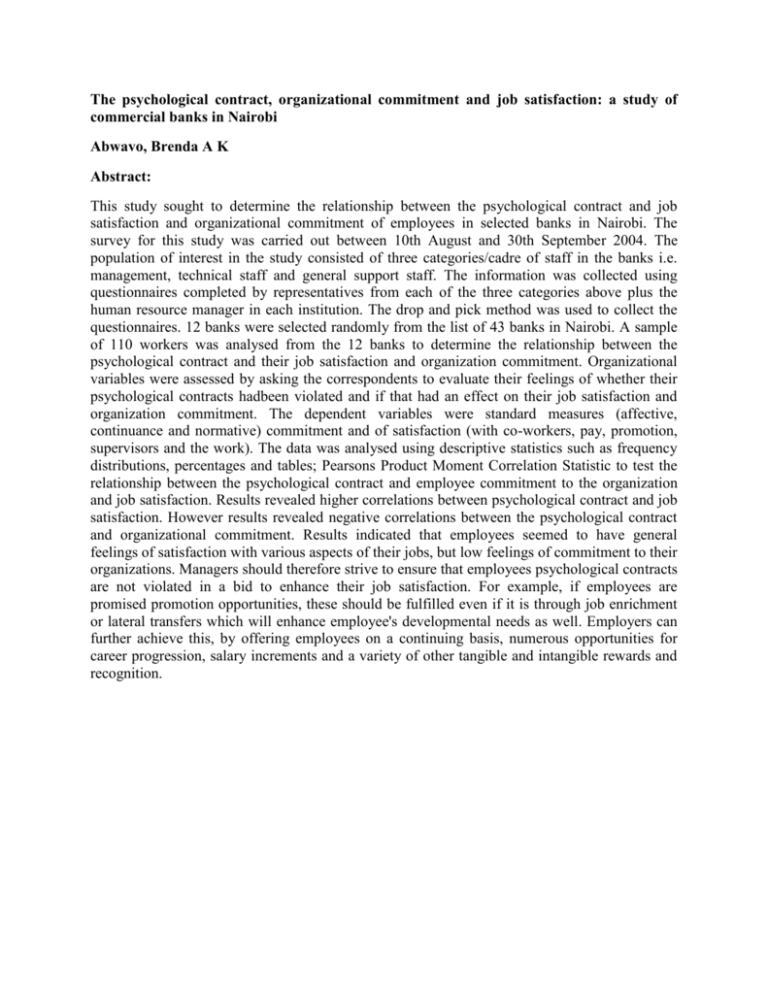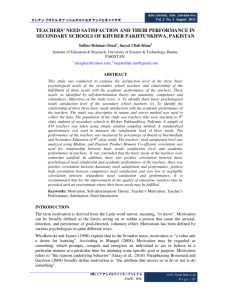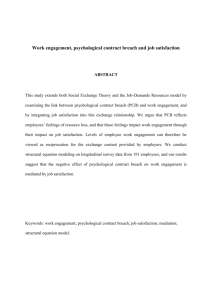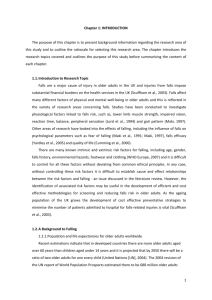Abwavo, Brenda A K
advertisement

The psychological contract, organizational commitment and job satisfaction: a study of commercial banks in Nairobi Abwavo, Brenda A K Abstract: This study sought to determine the relationship between the psychological contract and job satisfaction and organizational commitment of employees in selected banks in Nairobi. The survey for this study was carried out between 10th August and 30th September 2004. The population of interest in the study consisted of three categories/cadre of staff in the banks i.e. management, technical staff and general support staff. The information was collected using questionnaires completed by representatives from each of the three categories above plus the human resource manager in each institution. The drop and pick method was used to collect the questionnaires. 12 banks were selected randomly from the list of 43 banks in Nairobi. A sample of 110 workers was analysed from the 12 banks to determine the relationship between the psychological contract and their job satisfaction and organization commitment. Organizational variables were assessed by asking the correspondents to evaluate their feelings of whether their psychological contracts hadbeen violated and if that had an effect on their job satisfaction and organization commitment. The dependent variables were standard measures (affective, continuance and normative) commitment and of satisfaction (with co-workers, pay, promotion, supervisors and the work). The data was analysed using descriptive statistics such as frequency distributions, percentages and tables; Pearsons Product Moment Correlation Statistic to test the relationship between the psychological contract and employee commitment to the organization and job satisfaction. Results revealed higher correlations between psychological contract and job satisfaction. However results revealed negative correlations between the psychological contract and organizational commitment. Results indicated that employees seemed to have general feelings of satisfaction with various aspects of their jobs, but low feelings of commitment to their organizations. Managers should therefore strive to ensure that employees psychological contracts are not violated in a bid to enhance their job satisfaction. For example, if employees are promised promotion opportunities, these should be fulfilled even if it is through job enrichment or lateral transfers which will enhance employee's developmental needs as well. Employers can further achieve this, by offering employees on a continuing basis, numerous opportunities for career progression, salary increments and a variety of other tangible and intangible rewards and recognition.










